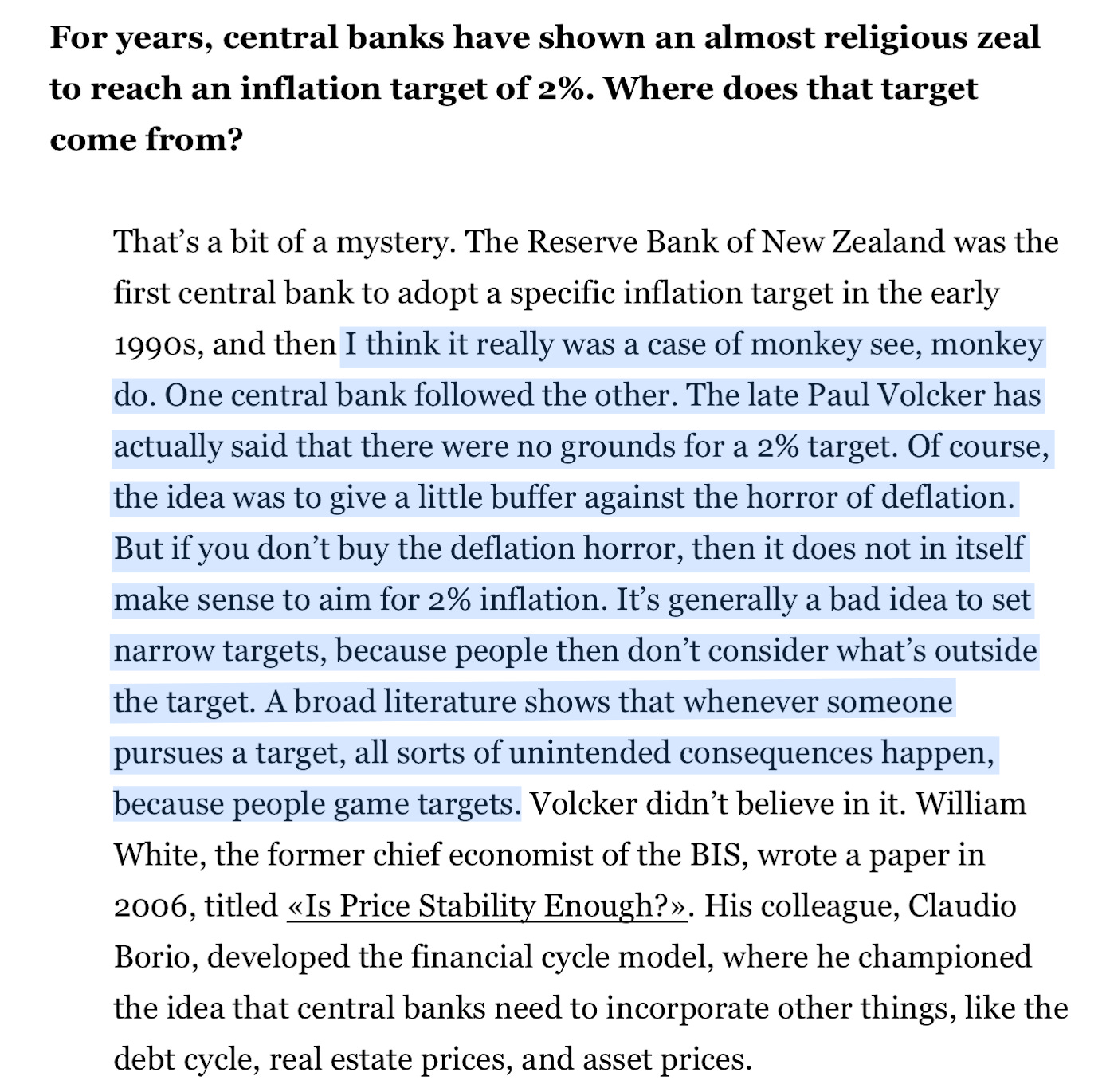To fight Inflation, the Bank of Canada is Engineering a Recession. They don't need to.
The Bank of Canada’s recession to fight inflation will result in exploding debts for governments - and calls for austerity, which will make it all worse.
While politicians shouldn’t be telling the Bank of Canada to change interest rates, that doesn’t mean it should be taboo to discuss the failures of the BoC’s monetary policy, when folks are warning that it will be “impossible to normalize interest rates without collapsing the economy.”
The consequences of this are already being predicted - job losses, bankruptcies, business failures, and higher government deficits, as Canada’s Parliamentary Budget Office predicted today.
We are not dealing with problems from the last two years, or the last ten. We are dealing with decades of monetary policy, that is based on arbitrary targets, and have fuelled an “everything bubble” in assets, including our entire housing crisis.
By based on arbitrary targets, I mean the 2% inflation target set by the Bank of Canada (and others) which has been selected as a target when no one can explain why.
Edward Chancellor, the historian and financial executive who warned about normalizing interest rates, wrote that it’s a “bit of a mystery” why the Reserve Bank of New Zealand set the inflation target at 2%, but “monkey see, monkey do” is not a sound principle by which one of the most powerful institutions in any given economy should be making its decisions.
In the long run, policies that crush inflation are not good for anyone - not little old ladies on pensions, or the government cutting public services, not people who can’t pay their bills, not businesses whose customers are stretching payments - not even the 0.1%, who may see the value of their portfolios crash when people vote for demagogues, or come charging though the gates with torches and pitchforks.
While central banks are responsible for the decisions that are fuelling this crisis, they are putting out the fire with gasoline. By hiking interest rates, they are trying to “cool down” the economy by bankrupting families and businesses, which will then result in less revenue and higher costs for government.
So, when these businesses go under and people lose their jobs, that means less tax revenue for governments. The Bank of Canada’s recession to fight inflation will result in exploding debts for governments - and calls for austerity, which will make it all worse.
I will say again - we should heed William White, currently a fellow at the CD Howe institute who worked at the Bank for International Settlements, and the Bank of Canada. In August, he called on the Bank of Canada and other central banks in the developed world to overhaul their monetary policy, focusing more on banks and debt than inflation.
You would be challenged to find anyone else in the world who has more credibility on these issues than White. As economic advisor to the BIS warned Alan Greenspan for five years about the risks that caused the 2008 Global Financial Crisis - a crisis few others saw coming.
Central Bank Independence doesn’t mean ignoring when people point out that you’re making a colossal mistake, and forcing other people to pay for it with their homes and livelihoods.
Doing the same thing over and over again is not an option, and we need an alternative to the policies of the last many years. We cannot keep repeating the mistakes of 2008-09, (and the intervening years). We must break with the practices that were set in motion by the Harper Conservatives.
It is a myth that Canada’s financial system was protected by strong bank regulation - though that idea was widely promoted, including in articles boasting that Canada’s middle class was suddenly richer than the U.S.
The reality is that Canada had a bank bailout on a scale comparable to the U.S. with $114-billion in money from the Bank of Canada, CMHC and the Federal Reserve.
There are absolutely solutions and alternatives, and it does not require firing or replacing anyone. It just means that people need to be open enough to consider changing their minds.
It’s about new ideas. As John Maynard Keynes wrote
” . . . the ideas of economists and political philosophers, both when they are right and when they are wrong, are more powerful than is commonly understood. Indeed the world is ruled by little else. Practical men, who believe themselves to be quite exempt from any intellectual influences, are usually the slaves of some defunct economist. Madmen in authority, who hear voices in the air, are distilling their frenzy from some academic scribbler of a few years back. I am sure that the power of vested interests is vastly exaggerated compared with the gradual encroachment of ideas. Not, indeed, immediately, but after a certain interval; for in the field of economic and political philosophy there are not many who are influenced by new theories after they are twenty-five or thirty years of age, so that the ideas which civil servants and politicians and even agitators apply to current events are not likely to be the newest. But, soon or late, it is ideas, not vested interests, which are dangerous for good or evil.”- John Maynard Keynes
And, at very least, start listening to William White.
***





